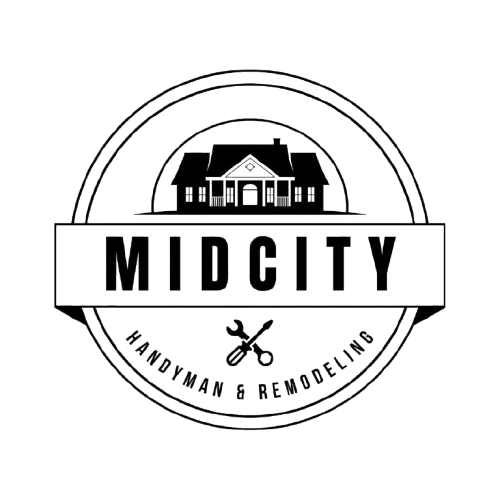How Do General Contractors Price Jobs
- Eldon Riley

- Sep 5, 2025
- 8 min read
Understanding how general contractors price jobs can be crucial for anyone looking to embark on a construction project. Whether you’re planning to build your dream home, renovate a kitchen, or undertake a commercial project, knowing what goes into the pricing can save you time, money, and stress.
You might wonder why quotes can vary significantly from one contractor to another. The answer lies in the intricate process contractors follow to ensure their pricing reflects the scope, complexity, and unique requirements of your project. By the end of this article, you'll have insights that could make you feel more confident and informed when discussing costs with your contractor. Dive in, and discover the factors that can influence the price of your next project!

Factors Influencing Job Pricing
Understanding how general contractors price jobs is crucial. Several factors determine the final cost. Each project is unique. Hence, its price varies based on specific elements. Let's explore these factors in detail.
Project Complexity
The complexity of a project greatly affects pricing. Simple projects require less planning and fewer resources. Complex projects involve intricate designs and specialized skills. These projects often take more time. Contractors factor this complexity into their pricing.
Material Costs
Materials play a vital role in job pricing. Prices for materials fluctuate with market trends. High-quality materials cost more. Contractors must account for these costs. They ensure materials meet project needs and client expectations.
Labor Expenses
Labor is another significant cost factor. Skilled workers demand higher wages. The number of workers impacts the overall labor cost. Contractors calculate this based on project scope and duration. They ensure a balance between cost and quality of work.
Location And Site Conditions
Location influences job pricing significantly. Urban areas often have higher costs than rural areas. Site conditions also matter. Difficult terrain or restricted access increases costs. Contractors must consider these challenges when pricing a job.
Estimating Techniques
Estimating techniques are vital for general contractors to accurately price jobs and ensure profitability. Understanding these methods can help you make informed decisions and avoid unexpected costs. You might have experienced the frustration of a project going over budgetaccurate estimates can prevent this.
Unit Pricing
Unit pricing involves setting a price per unit of work, such as per square foot or per hour. This technique is straightforward and helps in comparing costs easily. Imagine you're renovating a bathroom; unit pricing allows you to calculate the cost of tiles per square foot or plumbing work per hour. Using unit pricing can make it easier for you to assess whether you're getting a fair deal. It's a practical approach, especially for jobs with repetitive tasks or standard measurements.
Square Foot Pricing
Square foot pricing is commonly used for large-scale projects, like building homes or commercial spaces. Here, contractors determine a price per square foot, considering the overall scope and complexity. You might find this method particularly useful when comparing bids from different contractors. While this technique provides a quick estimate, it may not capture unique project details. Always ask your contractor about what’s included in the square foot price to avoid surprise charges.
Assembly Pricing
Assembly pricing bundles the cost of various components needed for a specific part of the project. It's like ordering a meal combo instead of individual items. If you're installing a kitchen, assembly pricing might include cabinets, countertops, and appliances as a package.
This method simplifies pricing and can offer cost savings. However, ensure that all necessary parts are included in the assembly to prevent additional expenses.
Detailed Estimate
Detailed estimates break down every aspect of the job, item by item. This method offers the most precise cost forecast, considering materials, labor, equipment, and overheads. Have you ever been surprised by hidden costs in a project? A detailed estimate can minimize such risks.
Although time-consuming, this technique ensures transparency and helps you understand where your money is going. Don't hesitate to request a detailed estimate to gain clarity and confidence in your project's budget. Which estimating technique do you think would work best for your next project? Choosing the right approach can save you time, money, and stress.

Understanding Overhead Costs
Understanding overhead costs is crucial for general contractors. These costs are often unseen but play a big role in pricing jobs. Overhead includes various expenses that don't directly relate to construction. Yet, they affect the overall budget. Let's explore some key overhead costs.
Administrative Expenses
Administrative expenses cover office operations. Things like salaries, office supplies, and utilities fall here. They ensure the business runs smoothly. Proper management of these costs helps keep projects on track. Contractors need to budget for these expenses. This ensures they don't eat into profit margins.
Insurance And Permits
Insurance provides protection against unforeseen events. It covers liabilities and potential damages. Permits are necessary for legal compliance. Both are essential for any job. Contractors must factor these into their pricing. They ensure safety and legality on the job site.
Equipment And Tools
Equipment costs can be significant. Tools and machinery need regular maintenance. Sometimes, they require upgrades. These costs are part of overhead. Efficient use of equipment minimizes expenses. Contractors often rent equipment to save money. Proper planning helps balance these costs.
Profit Margins
Profit margins play a crucial role in a contractor's pricing strategy. These margins determine the actual earnings from each project. A well-calculated profit margin ensures sustainability and growth. Understanding how general contractors set these margins is vital for comprehending overall project costs.
Determining Profit Percentage
Contractors usually start by calculating direct costs. These include labor, materials, and equipment. They then assess indirect costs like office expenses and insurance. After covering all costs, they decide on a profit percentage.
This percentage varies depending on the project's complexity and duration. Choosing the right profit percentage is a balancing act. Contractors must ensure it's high enough to sustain their business. Yet, it must remain competitive. This delicate balance influences the final price clients see.
Impact Of Market Competition
Market competition significantly influences profit margins. In highly competitive areas, contractors might lower margins. This helps them secure more projects. Conversely, in less competitive markets, they might increase margins. Here, there's less pressure to undercut prices.
Contractors often conduct market research. They analyze competitor pricing and adjust their profit margins accordingly. This strategy helps them stay competitive while maintaining profitability.
Balancing Risk And Reward
Profit margins must reflect potential project risks. Complex projects might have higher unforeseen costs. Contractors might increase their margins to cover these risks. On the other hand, straightforward projects may have lower margins. This approach helps balance potential losses and rewards.
Risk assessment is crucial in this process. Contractors weigh the likelihood of unexpected challenges. They adjust their pricing to ensure they can handle any surprises. This careful planning safeguards their business while offering fair prices to clients.

Negotiation Strategies
General contractors use detailed negotiation strategies to price jobs effectively. They consider material costs, labor, and project complexity. Accurate estimation helps in offering competitive pricing while ensuring profitability.
Negotiation Strategies are a crucial component of pricing jobs effectively as a general contractor. It's not just about setting a price and hoping the client agrees. Instead, it's about understanding your client's needs, offering flexibility, and highlighting what makes your service unique. Let's dive into some practical ways to negotiate effectively.
Client Communication
Open and honest communication with clients can be your most powerful negotiation tool. When you clearly understand what your clients want, you can tailor your proposals to meet their needs. Ask questions like, "What is your top priority for this project?" or "Are there any budget constraints I should be aware of?" This not only builds trust but also positions you as a partner rather than just a service provider.
Consider sharing a time when clear communication saved a project. For example, a client once wanted a quick turnaround, but after discussing potential quality compromises, they agreed to a longer timeline. Effective communication led to a satisfied client and a project delivered without cutting corners.
Flexible Pricing Models
Being flexible with your pricing models can give you a significant edge in negotiations. Offering different pricing options, such as fixed-price, time and materials, or cost-plus, allows clients to choose what aligns with their budget and comfort level.
Think about which model suits a specific project. A fixed-price model might appeal to a client with a strict budget, while a cost-plus model can work for those who value transparency over cost. Offering these choices shows that you're accommodating and considerate of varying client preferences.
Value-added Services
Highlighting value-added services can set you apart from competitors. Do you offer post-project support, like a free inspection after six months? Or perhaps you have a network of trusted suppliers who provide top-quality materials at a discount? These perks can tip the scales in your favor. Clients may be willing to pay a bit more if they see additional benefits they wouldn't get elsewhere. This strategy doesn't just help in closing deals; it also fosters long-term relationships and repeat business.
Ask yourself: What unique services can you offer that others don't? Consider using personal stories to illustrate your point. Perhaps there was a client who chose your service because of a unique warranty you offered, which no one else did. Such examples demonstrate real value to potential clients. By integrating these strategies into your negotiation approach, you can transform how you price jobs and enhance client satisfaction. What other tactics have you found effective in negotiations? Share your thoughts in the comments!
Common Pricing Challenges
Pricing jobs is a complex task for general contractors. They face several challenges that can impact their bottom line. Understanding these challenges helps in managing costs effectively.
Unforeseen Circumstances
Unforeseen events can disrupt project timelines. Weather changes or unexpected site conditions are common issues. These can lead to additional labor and material costs. Contractors must adjust their pricing to accommodate these risks. Planning for contingencies can help mitigate these challenges.
Change Orders
Change orders are common in construction projects. They occur when project details change after work begins. These changes can increase project costs significantly. Contractors must manage these changes carefully. They need clear communication with clients to handle change orders effectively.
Budget Constraints
Budget constraints limit the scope of projects. Clients often have strict budgets to adhere to. Contractors must balance quality and cost within these limits. Efficient resource management becomes crucial. It requires careful planning and negotiation to meet budget expectations.

Frequently Asked Questions
How To Estimate A Job As A Contractor?
Estimate a contractor job by assessing project scope, materials, labor costs, and time. Research market rates and consider overhead expenses. Calculate potential profit margins and risks. Create a detailed, transparent proposal for the client, ensuring clarity. Adjust estimates for unforeseen factors to maintain accuracy and competitiveness.
What Is Typical Markup For General Contractor?
General contractors typically apply a markup of 10% to 20% on projects. This covers overhead and profit. The exact percentage can vary based on project complexity, location, and market conditions. For accurate estimates, it's essential to discuss specific details with the contractor.
How Does A General Contractor Bid A Job?
A general contractor bids a job by estimating costs, labor, materials, and timelines. They review project details, assess site conditions, and prepare a detailed proposal. The bid includes pricing and terms, ensuring competitive and realistic offers. Contractors submit bids to clients for consideration and selection.
How Much Should A Contractor Charge For A Job?
Contractor charges vary based on project complexity, location, and materials. Research market rates and consider experience level. Typically, contractors charge hourly rates or flat fees. Ensure clear communication of costs upfront. Always get multiple quotes for comparison to ensure competitive pricing.
Conclusion
Understanding how general contractors price jobs helps homeowners budget wisely. It involves material costs, labor fees, and project complexity. Each factor impacts the final estimate. Clear communication with your contractor ensures transparency. Ask questions about pricing details. It helps avoid surprises later.
Consider multiple quotes before deciding. Compare costs, timelines, and services offered. This can lead to better choices. Remember, a fair price reflects quality work. Trust and professionalism should guide your selection. Hiring the right contractor leads to successful projects. Make informed decisions for a smooth experience.
Your home deserves expert care and attention.
Ready to bring your home improvement dreams to life?
At MidCity Handyman & Remodeling, we specialize in turning visions into reality with quality craftsmanship and personalized service. Whether you're planning a remodel, repair, or upgrade, our team is here to make it happen.
Contact Us for a Free, No-Obligation Quote:
Website: midcityhr.com
Email: info@midcityhr.com
Phone: (585) 283-0160
Facebook: facebook.com/MidCityHR
Follow us on Facebook for updates on our latest projects and helpful tips. Let’s make your home everything you’ve dreamed of!



